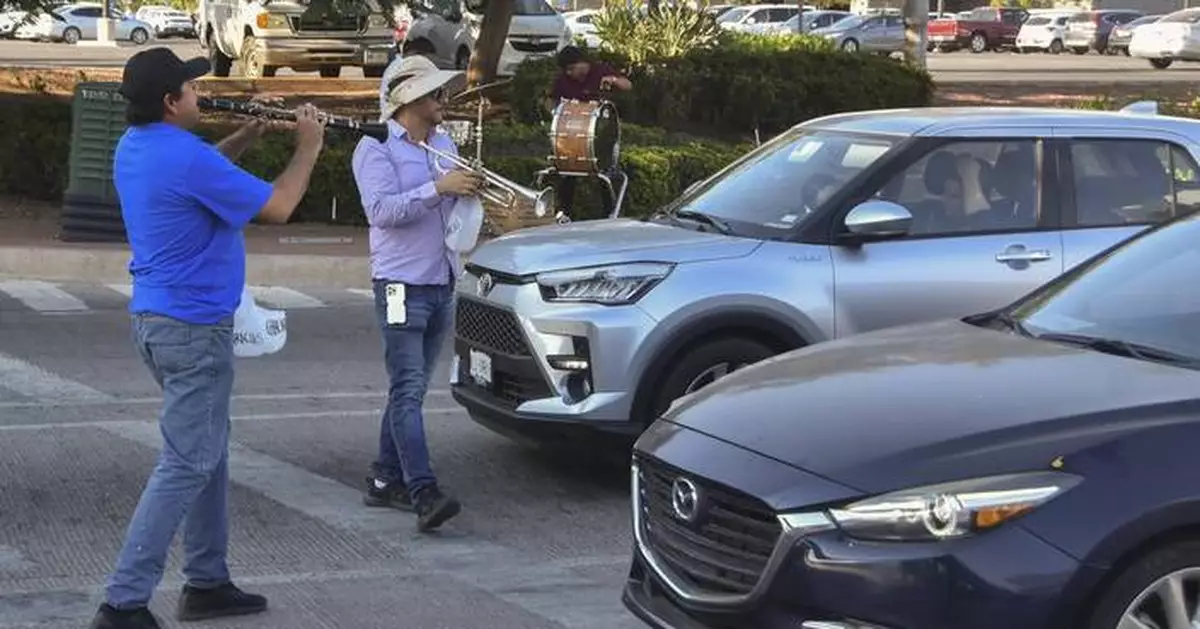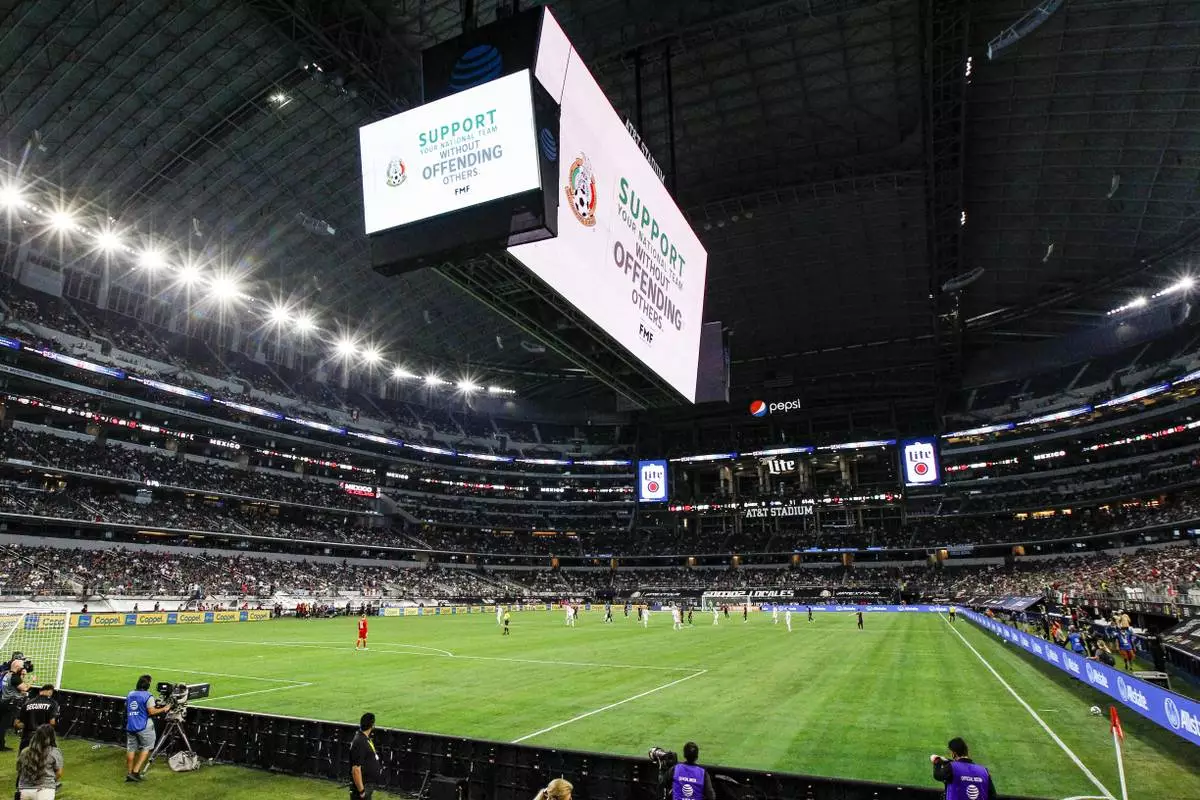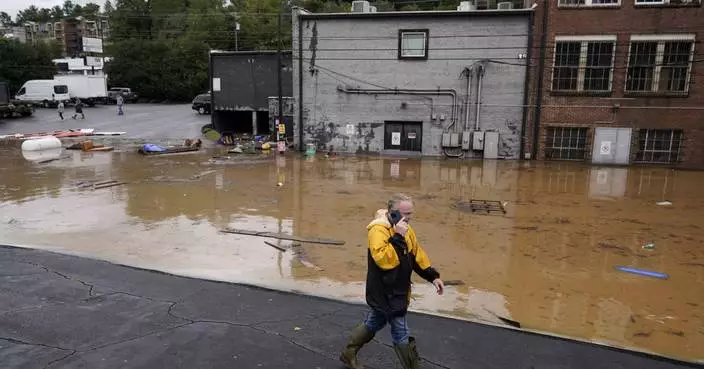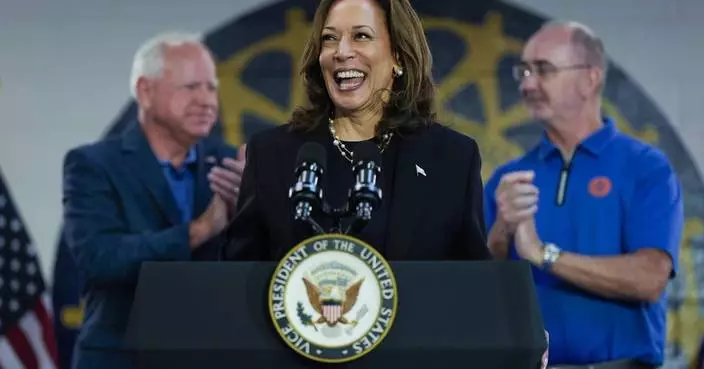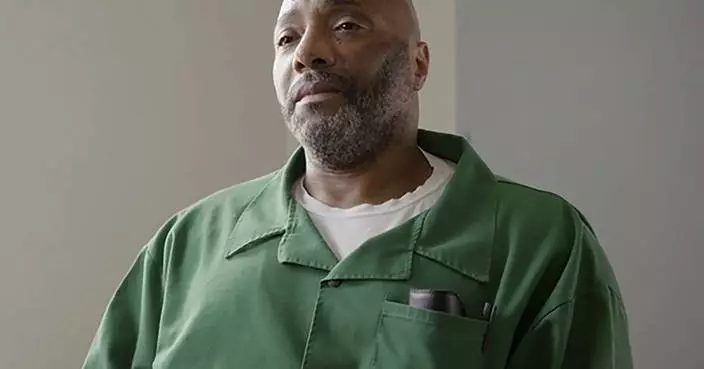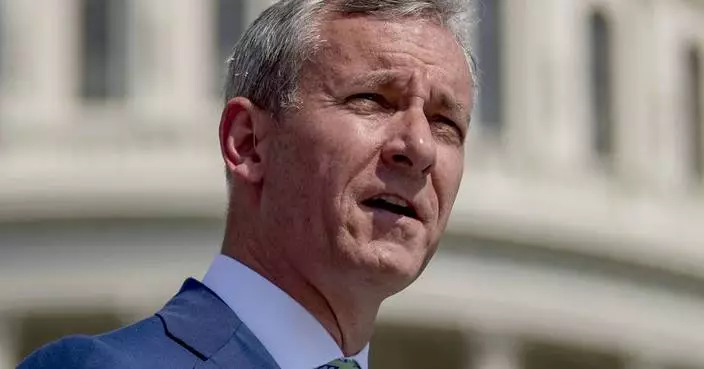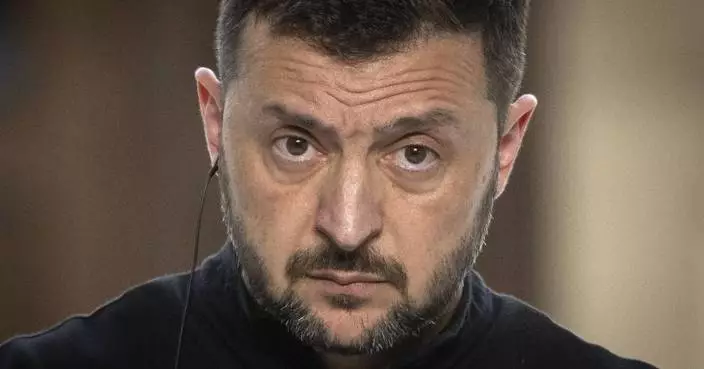MEXICO CITY (AP) — Cellphone chats have become death sentences in the continuing, bloody factional war inside Mexico's Sinaloa drug cartel.
Cartel gunmen stop youths on the street or in their cars and demand their phones. If they find a contact who’s a member of a rival faction, a chat with a wrong word or a photo with the wrong person, the phone owner is dead.
Then, they’ll go after everyone on that person's contact list, forming a potential chain of kidnapping, torture and death. That has left residents of Culiacan, the capital of Sinaloa state, afraid to even leave home at night, much less visit towns a few miles away where many have weekend retreats.
“You can’t go five minutes out of the city, ... not even in daylight,” said Ismael Bojórquez, a veteran journalist in Culiacan. “Why? Because the narcos have set up roadblocks and they stop you and search through your cellphone.”
And it’s not just your own chats: If a person is traveling in a car with others, one bad contact or chat can get the whole group kidnapped.
That’s what happened to the son of a local news photographer. The 20-year-old was stopped with two other youths and something was found on one of their phones; all three disappeared. Calls were made and the photographer’s son was finally released, but the other two were never seen again.
Residents of Culiacan had long been accustomed to a day or two of violence once in a while. The presence of the Sinaloa cartel is woven into everyday life there, and people knew to stay indoors when they saw the convoys of double-cab pickups racing through the streets.
But never have they seen the solid month of fighting that broke out Sept. 9 between factions of the Sinaloa cartel after drug lords Ismael “El Mayo” Zambada and Joaquín Guzmán López were apprehended in the United States after flying there in a small plane on July 25.
Zambada later claimed he was kidnapped and forced aboard the plane by Guzmán López, causing a violent battle between Zambada’s faction and the “Chapitos” group led by the sons of imprisoned drug lord Joaquin “El Chapo” Guzmán.
Residents of Culiacan are mourning their old lives, when the wheels of the local economy were greased by cartel wealth but civilians seldom suffered — unless they cut off the wrong pickup truck in traffic.
Juan Carlos Ayala, an academic who studies the anthropology of the drug trade at the Autonomous University of Sinaloa, said that following the arrests of Guzmán López and Zambada in July, a new generation of younger, more flashy and cosmopolitan drug lords have taken over.
They fight with extreme violence, kidnapping and cellphone tracking — not the old kind of handshake deals their elders used alongside shootouts to settle matters.
“There is a new generation of leaders of drugs and organized crime here, that has other strategies,” Ayala said. “They see that the tactic of shootouts hasn’t worked for them, so they go for kidnapping.”
“They catch one person, and he has messages from the rival group,” said Ayala. “So they go after him to squeeze more information, and that starts a chain of hunting, to catch the enemy.”
The new tactics are reflected in the huge wave of armed carjackings in and around Culiacan. Cartel gunmen used to steal the SUVs and pickups they favor for use in cartel convoys; but now they focus on stealing smaller sedans.
They use these to go undetected in their silent, deadly kidnappings.
Often, the first a driver knows is when a passing car tosses out a spray of bent nails to puncture his tires. Vehicles pull up front and rear to cut him off. The driver is bundled into another car. All that is left for neighbors to find is a car with burst tires, the doors open, the engine running, in the middle of the street.
The State Council on Public Safety, a civic group, estimates that in the past month there have been an average of six killings and seven disappearances or kidnappings in and around the city every day. The group said about 200 families have fled their homes in outlying communities because of the violence.
Culiacan is no stranger to violence — shooting broke out across the city in October 2019 when soldiers mounted a failed attempt to arrest another of Chapo Guzmán’s sons, Ovidio. Fourteen people were killed that day.
A few days later, civic activist Estefanía López arranged a peace march and 4,000 residents turned out for it. When she tried to do something similar this year, she could get only about 1,500 people to attend a similar demonstration.
“We got a lot of messages beforehand from a lot of people who said they wanted to join and march, to support the cause, but who were afraid to come,” López said.
There’s reason to be afraid: Last week, gunmen burst into a Culiacan hospital to kill a patient previously wounded by gunshots. In a town north of Culiacan, drivers were astonished to see a military helicopter seeking to corral four gunmen in helmets and tactical vests just yards from a highway; the gunmen were shooting back at the chopper.
The government’s response to all this has been to blame the United States for stirring up trouble by allowing the drug lords to turn themselves in, and to send in hundreds of army troops.
But irregular urban combat in the heart of a city of 1 million inhabitants — against a cartel that has lots of .50-caliber sniper rifles and machine guns — is not the army’s specialty.
Squads of soldiers went into a luxury apartment complex in the city’s center to detain a suspect and they wound up shooting to death a young lawyer who was merely a bystander.
López, the peace activist, has been asking for soldiers and police to be posted outside schools, so children can return to classes — most are currently taking classes online because their parents judge it too dangerous to take them to school.
But police can’t solve the problem: Culiacan’s entire municipal force has been temporarily disarmed by soldiers to check their guns, something that’s been done in the past when the army suspects policemen are working for drug cartels.
The local army commander recently acknowledged that it's up to the cartel factions — not authorities — when the violence will stop.
“In Culiacan, there is not even faith anymore that we will be safe, with police or soldiers,” López said, noting that that has had a clear effect on daily life and the economy. “A lot of businesses, restaurants and nightclubs have been closed for the past month.”
Laura Guzmán, the leader of the local restaurant chamber, said about 180 businesses in Culiacan have closed, permanently or temporarily, since Sept. 9 and almost 2,000 jobs have been lost.
Local businesses tried to organize evening “tardeadas” — long afternoons — for residents who were afraid to go out after dark, but they didn’t draw enough customers.
“Young people are not interested in going out right now,” Guzmán said.
For those looking to get away from the violence temporarily, the seaside resort of Mazatlan used to be only 2½ hours away by car. But that’s not an option since last month when cartel gunmen hijacked passenger buses, forced the tourists off and burned the vehicles to block the road to Mazatlan.
That leaves just one option, and one only open to some.
“Those who have the economic resources get out of the city by airplane to take a break,” Guzmán said.
Follow AP’s coverage of Latin America and the Caribbean at https://apnews.com/hub/latin-america
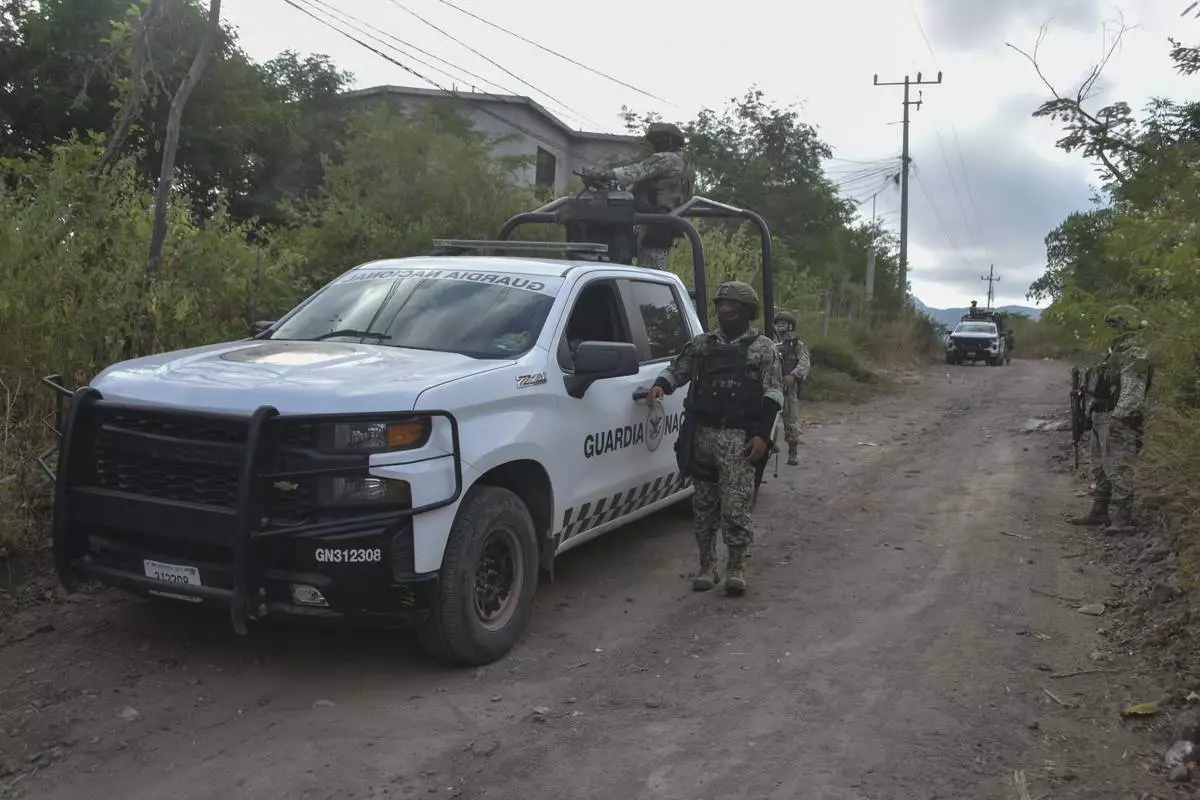
National Guards patrol a street in Culiacan, Sinaloa state, Mexico, Monday, Oct. 14, 2024. (AP Photo)
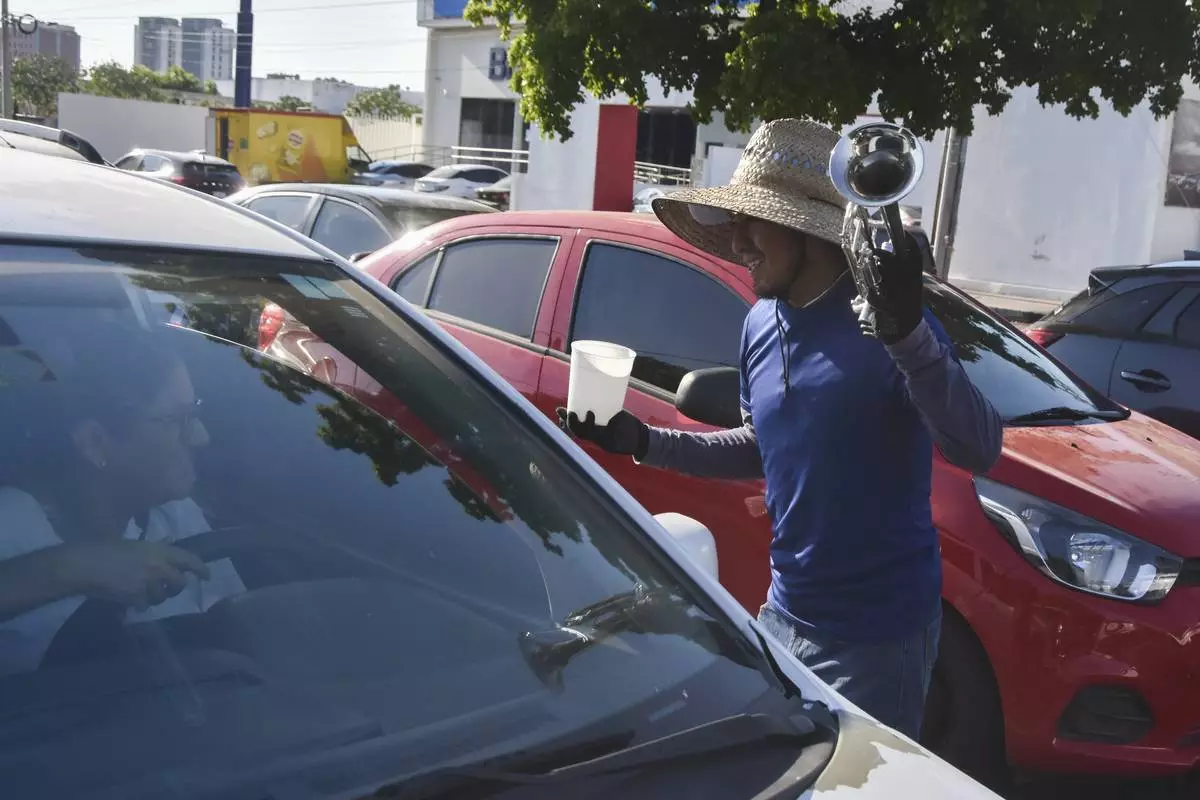
A musician collects tips from motorists in Culiacan, Sinaloa state, Mexico, Monday, Oct. 14, 2024. (AP Photo)
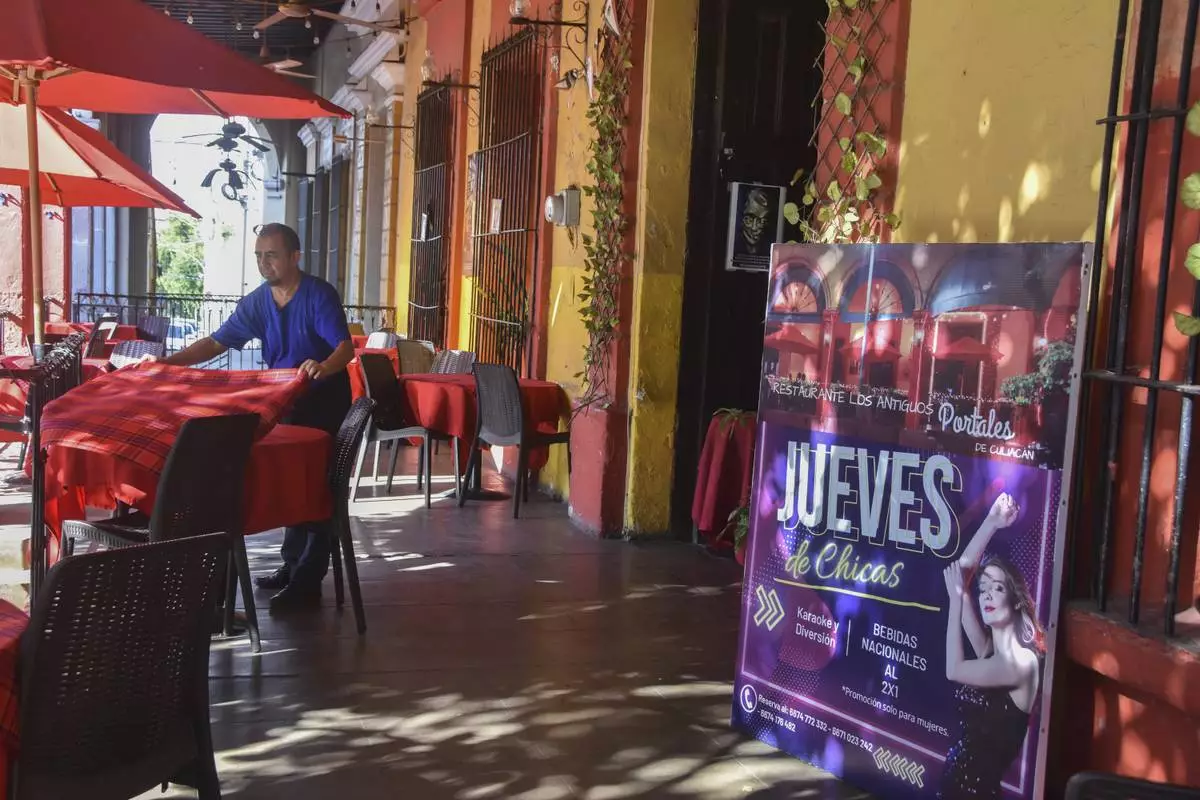
A waiter arranges a table outside the restaurant The Old Portales of Culiacan where a sign advertises two-for-one prices on drinks for women on Thursdays, in Culiacan, Sinaloa state, Mexico, Monday, Oct. 14, 2024. (AP Photo)
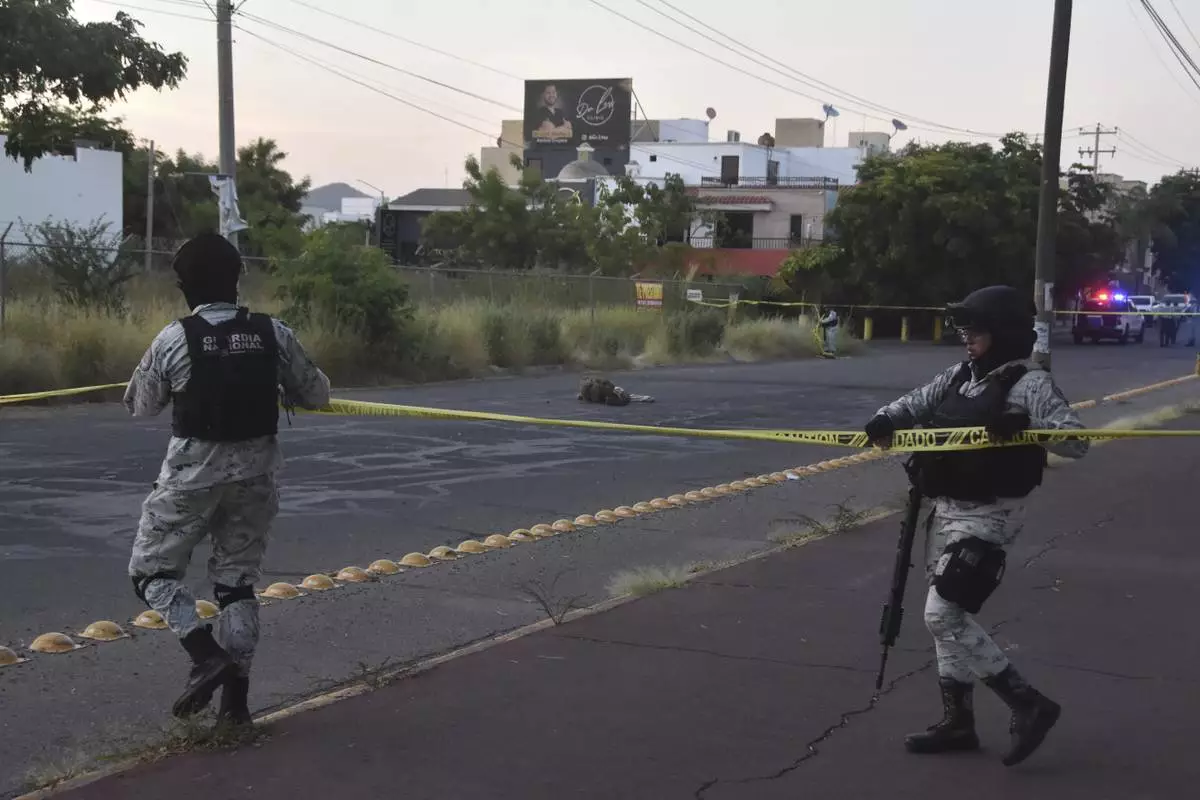
National Guards cordon off an area where a corpse lies on a street in Culiacan, Sinaloa state, Mexico, Monday, Oct. 14, 2024. (AP Photo)
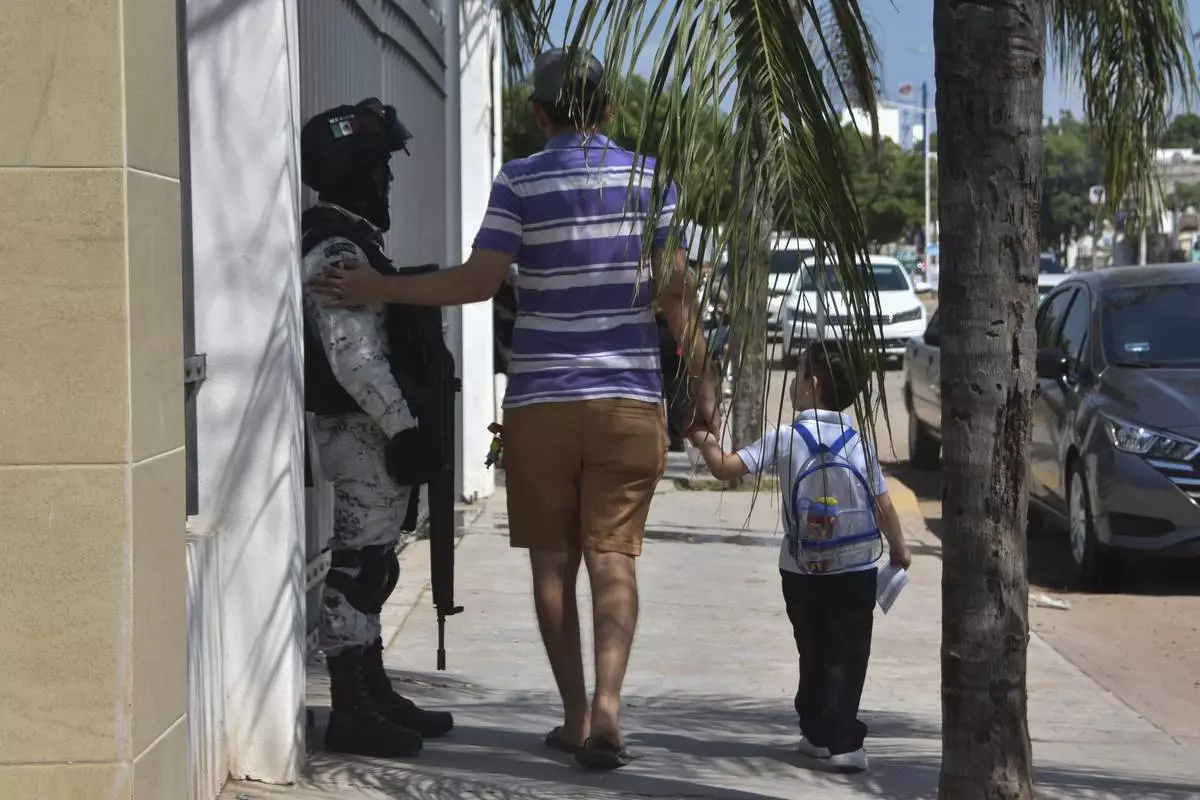
A resident pats a National Guard on the arm after picking a child up from school in Culiacan, Sinaloa state, Mexico, Monday, Oct. 14, 2024. (AP Photo)
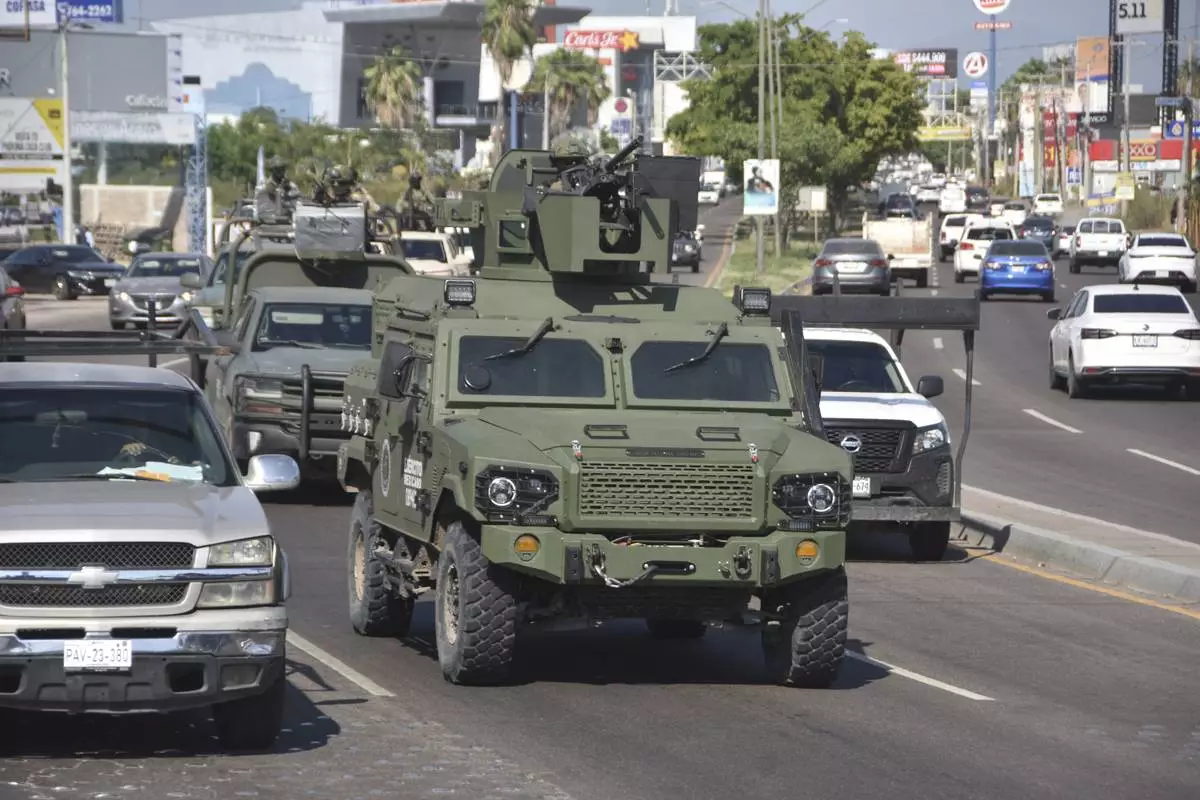
National Guards patrol the streets in Culiacan, Sinaloa state, Mexico, Monday, Oct. 14, 2024. (AP Photo)
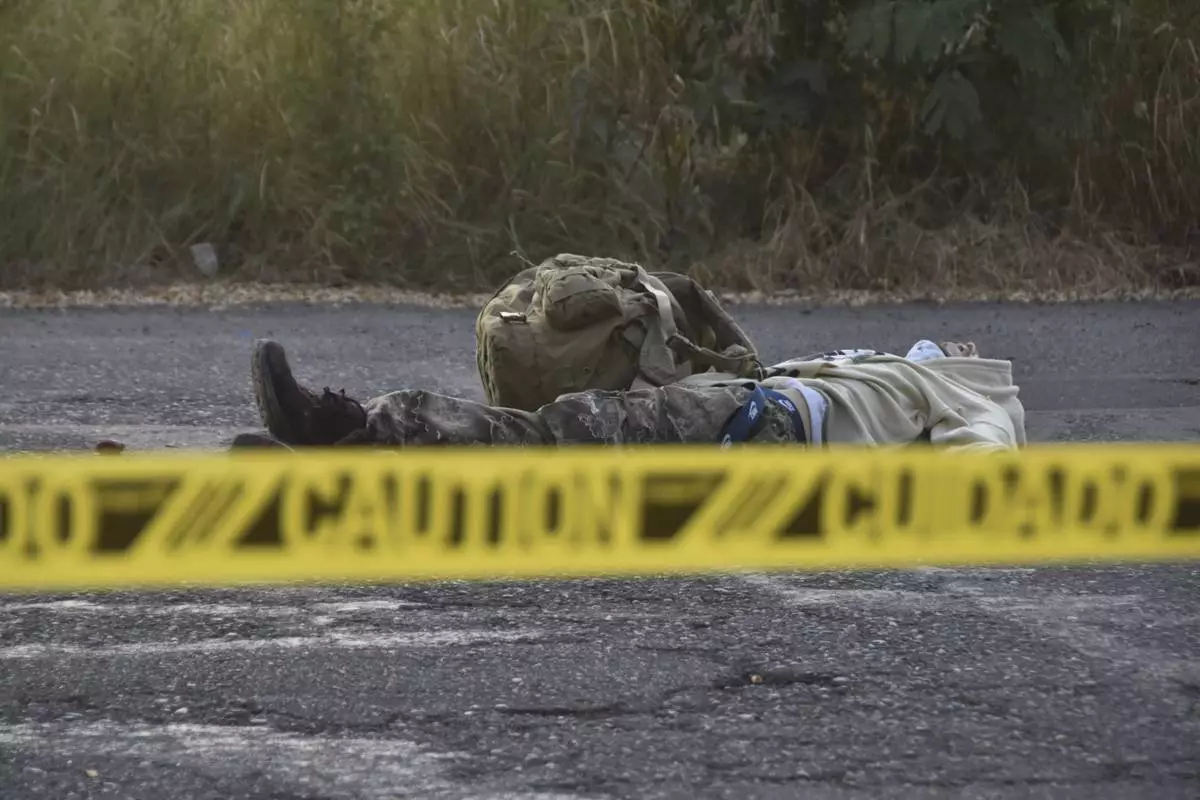
Caution tape surrounds a body lying on the street Culiacan, Sinaloa state, Mexico, Monday, Oct. 14, 2024. (AP Photo)
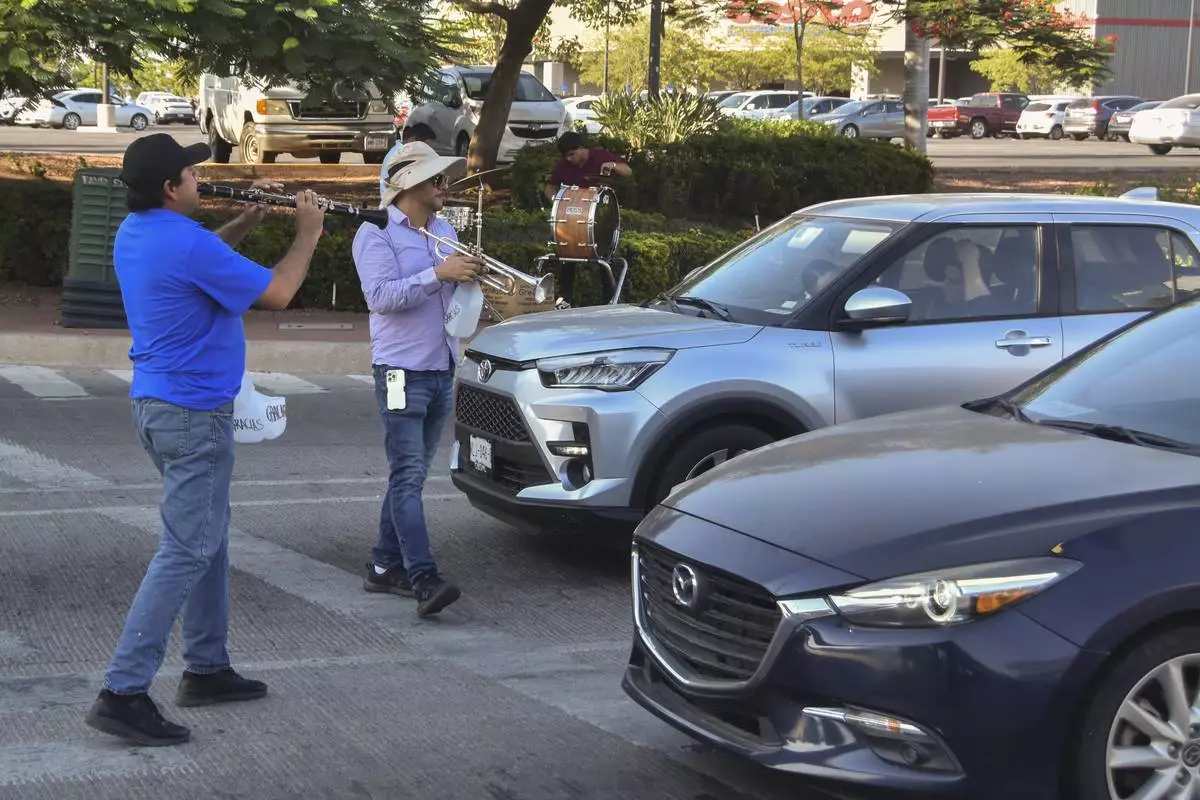
Musicians play for tips from motorists in Culiacan, Sinaloa state, Mexico, Monday, Oct. 14, 2024. (AP Photo)


